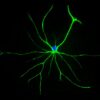According to a brand new study published in Nature, patients suffering from Alzheimer’s disease may have an increased number of somatic mutations in comparison to people without the disease as a result of aging.
The onset of somatic mutations occur upon aging. Errors in DNA begin to accumulate over time within our brain cells. This procedure becomes more rampant among patients with Alzheimer’s.
The authors of the study determined their findings from using single-cell whole genome sequencing of more than 300 hippocampal and prefrontal cortex neurons of both patients with Alzheimer’s and without.
“Here we analysed single-cell whole-genome sequencing data from 319 neurons from the prefrontal cortex and hippocampus of individuals with Alzheimer’s disease and neurotypical control individuals,” the authors declared.
“We found that somatic DNA alterations increase in individuals with Alzheimer’s disease, with distinct molecular patterns.”
What researchers determined: “Our results suggest that known pathogenic mechanisms in Alzheimer’s disease may lead to genomic damage to neurons that can progressively impair function. The aberrant accumulation of DNA alterations in neurodegeneration provides insight into the cascade of molecular and cellular events that occurs in the development of Alzheimer’s disease.”


